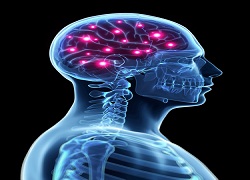 The question of personality types and their suitability for trading is a fascinating subject that’s often a focal point of discussion amongst trading groups. However, the majority of articles and opinion on personality trading types may be focusing on the wrong key areas…
The question of personality types and their suitability for trading is a fascinating subject that’s often a focal point of discussion amongst trading groups. However, the majority of articles and opinion on personality trading types may be focusing on the wrong key areas…
Typically we’ll read opinions that traders have to be: “resilient, persistent, have a can do attitude, be optimistic, never say die, go the extra mile” and whilst these personality traits may be valuable they’re not essential to forging out a career in trading.
For example the “can do”, “upbeat” “positive mental attitude” character is no more likely to succeed than the character who has a natural cynicism and scepticism regarding the markets. In fact many in positions of authority, or experience would suggest that the latter character is more likely to succeed versus the eternal never say die optimist. The cynic has probably lived longer, seen more and is less likely to be whipped up into frenzy by the hysterical claims made by certain factions within our industry.
In the workplace it’s not uncommon for potential employers to ask for psychometric analysis tests to be administered and for potential employees to undergo further suitability and aptitude tests. And there’s often a common misconception with regards to aptitude and aptitude tests; aptitude is not knowledge or achievement…
What is aptitude?
An aptitude is a component of a competency to do a certain kind of work at a certain level, which can also be considered “talent”. Aptitudes may be physical or mental. Aptitude is not knowledge, understanding, learned or acquired abilities (skills) or attitude. The innate nature of aptitude is in contrast to achievement, which represents knowledge or ability that is gained.
There is however an argument put forward that aptitude and intelligence quotient (basic IQ measurements) are related, and could be considered opposite views of human mental ability. Whereas intelligence quotient sees intelligence as being a single measurable characteristic affecting all mental ability, aptitude refers to one of many different characteristics which can be independent of each other, such as aptitude for military flight, air traffic control, or computer programming. This is more similar to the theory of multiple intelligences. And multiple intelligences are probably key to our trader development and personality…
Multiple intelligence
Consider this point; if we were in the position of employing a relatively young raw recruit to our trading world what tests would we demand of them? Sure we’d look at their cv, their past experience, what qualifications they had, what achievements they’d made, perhaps on the sporting field not just in the classroom. But what ‘X factor’ would be looking for? And in asking that of a potential recruit what questions should we actually ask ourselves in relation to our own suitability for trading?
Fluid intelligence
Aptitude tests can typically be grouped according to the type of cognitive ability they measure, for example, fluid intelligence which can be defined as the ability to think and reason abstractly, effectively solving problems and thinking strategically. It’s more commonly known as ‘street smarts’, or the ability to ‘quickly think on your feet’. These would be examples of what employers can learn from your fluid intelligence about your suitability for the role for which you are applying.
Crystallized intelligence
Crystallized intelligence can be defined as the ability to learn from past experiences and relevant learning, and to apply this learning to work-related situation. Work situations that require crystallized intelligence include producing and analyzing written reports, comprehending work instructions, using numbers as a tool to make effective decisions.
I’m sure readers can now clearly see the high relevance both ‘fluid intelligence’ and ‘crystallized intelligence’ has to us as traders. These critical ‘measurements’ of intelligence have far more relevance to our trading development and our trading personality than the usual ‘can do/never say die’ descriptions and misconceptions many in the industry would lazily refer to.
In looking at fluid intelligence we can quickly take that overall description and fit it to trading; we have to think in an abstract manner, be extremely creative, solve problems continually and think strategically. We have to develop street smarts and be ready to react and adapt to a fluid market which can perform a handbrake turn based on certain braking high impact news events.
When considering crystallized intelligence we can once again see the high relevance to trading; we need to learn quickly from our mistakes, our successes and previous experiences. All of our experiences in trading have led to us being the human trader we are today when trading the markets. We have to compile a trading journal or reports (if we’re answerable to superiors) and contain our journal in our overall trading and business plan. Our ability to use ‘numbers’ within our trading experience goes without saying, our industry is ‘numbers’, data, macro events, and exact measurements using our charting packages.
Our conclusion is that we don’t need to have or need to develop the ‘right’ personality in order to trade. Neither do we need to select a trading method to match the personality traits we believe we have. What we need to do is concentrate on the key issues of fluid and crystallized intelligence, two parts of the critical multi intelligence factor that will ensure we have the right approach to trading.





